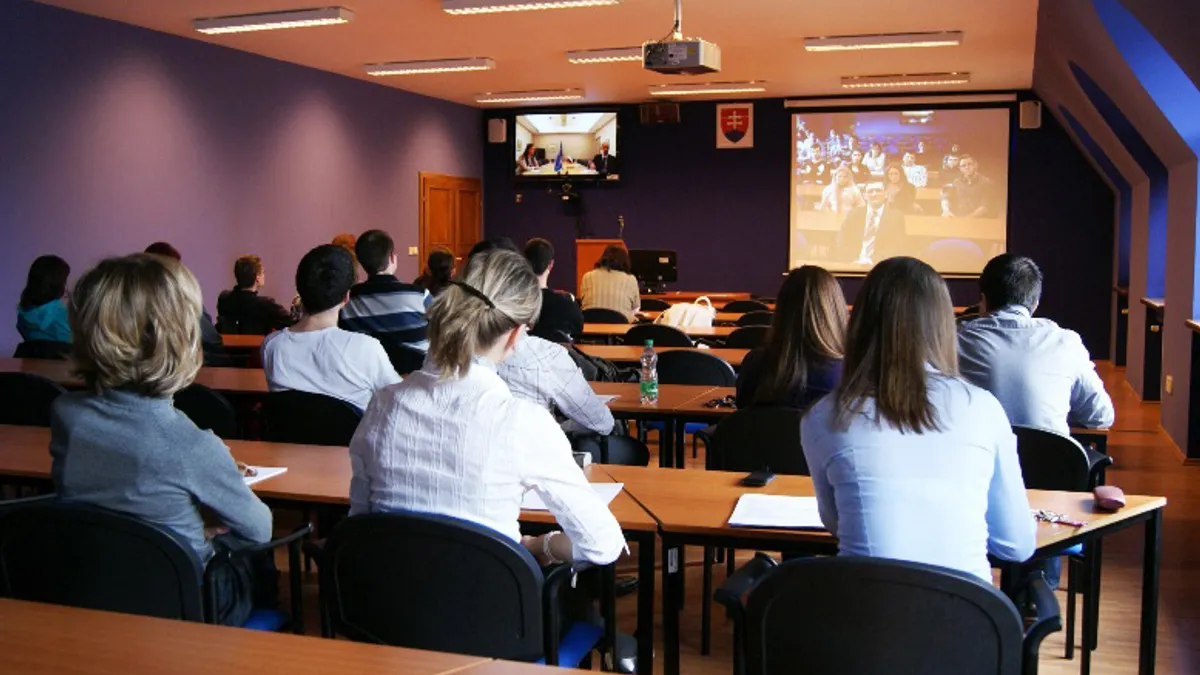Dive Brief:
- Rather than avoiding the discussion of controversies that affect our society, teachers should use these incidents as a way for students to learn about civil discourse in a safe environment, Edutopia suggests.
- Depersonalizing the opinions in the context of a classroom project can allow students to view these opinions in a more detached way and to model appropriate responses that may not been seen in media representations of the issues.
- These discussions can also allow students to learn how to analyze media content in order to filter out bias, name calling and irrelevant material in order to build critical thinking skills
Dive Insight:
America was built on a foundation of civil discourse and it is a skill that is still needed today. In the early days of the country, civil discourse was played out in courtrooms, taverns and on street corners. Today, the discourse is on Facebook and Twitter, and it's often far from civil.
However, schools are charged with the task of producing better citizens. This can be accomplished in childhood by teaching debate skills early on. The added benefit of such early debate instruction is the increase of student reasoning ability that can affect other aspects of their academic life. Teaching students the art of civil discourse and effective argumentation skills can also help them develop cognitive competence that will stand them in good stead not only in school, but in life as well.
In an age where media constantly influences both opinions and actions, students also learn digital media literacy skills that go beyond ordinary reading. Unfortunately, students today also need to be able recognize fake news in order to function effectively in society. These skills will not only help students succeed in life and the workplace, but may create a new generation of leaders as well — hopefully ones who find better ways to communicate in the future.












